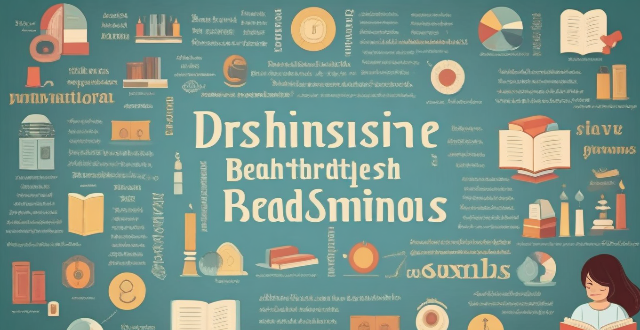The text discusses the relationship between reading comprehension and critical thinking skills, stating that they are closely intertwined. It explains that good reading comprehension skills enable individuals to understand and interpret written text, which in turn supports critical thinking by enhancing vocabulary, promoting inference and interpretation, encouraging evaluative thinking, and fostering open-mindedness. The text concludes that improving reading comprehension abilities strengthens critical thinking skills, enabling individuals to navigate complex challenges with greater insight and effectiveness.

How does reading comprehension relate to critical thinking skills?
Reading comprehension and critical thinking skills are closely intertwined. Understanding the relationship between these two abilities can help individuals improve their cognitive processes and make better decisions in various aspects of life.
The Role of Reading Comprehension
Reading comprehension is the ability to understand and interpret written text. It involves several cognitive processes, including decoding, vocabulary knowledge, inferencing, and integrating information. Good reading comprehension skills enable individuals to:
- Identify the main idea and supporting details in a text.
- Make connections between different parts of the text.
- Infer meaning from context clues.
- Evaluate the author's purpose and perspective.
The Importance of Critical Thinking Skills
Critical thinking skills involve analyzing, evaluating, and synthesizing information to form judgments and make informed decisions. These skills are essential for success in both personal and professional settings. Some key components of critical thinking include:
- Identifying assumptions and biases.
- Analyzing arguments and evidence.
- Evaluating conclusions and recommendations.
- Making logical inferences and predictions.
How Reading Comprehension Supports Critical Thinking
1. Enhancing Vocabulary and Conceptual Understanding
Effective reading comprehension helps build a strong foundation of vocabulary and conceptual understanding, which are crucial for critical thinking. By encountering new words and ideas through reading, individuals expand their knowledge base and become better equipped to analyze complex issues.
2. Promoting Inference and Interpretation
Good readers develop the ability to draw inferences and interpret text, which directly supports critical thinking. They learn to identify implicit meanings, understand cause-and-effect relationships, and recognize underlying themes or patterns.
3. Encouraging Evaluative Thinking
Reading comprehension encourages evaluative thinking by prompting readers to assess the credibility of sources, evaluate arguments, and consider multiple perspectives. This process mirrors the critical thinking required to make informed judgments in various situations.
4. Fostering Open-Mindedness and Creativity
Through exposure to diverse texts, reading comprehension promotes open-mindedness and creativity, traits that are essential for critical thinking. Readers learn to appreciate different viewpoints and approaches, fostering a more nuanced understanding of complex issues.
Conclusion
In summary, reading comprehension plays a vital role in developing critical thinking skills. By enhancing vocabulary, promoting inference and interpretation, encouraging evaluative thinking, and fostering open-mindedness, effective reading comprehension lays the groundwork for higher-level cognitive processes such as analysis, evaluation, and synthesis. As individuals improve their reading comprehension abilities, they also strengthen their capacity for critical thinking, enabling them to navigate complex challenges with greater insight and effectiveness.